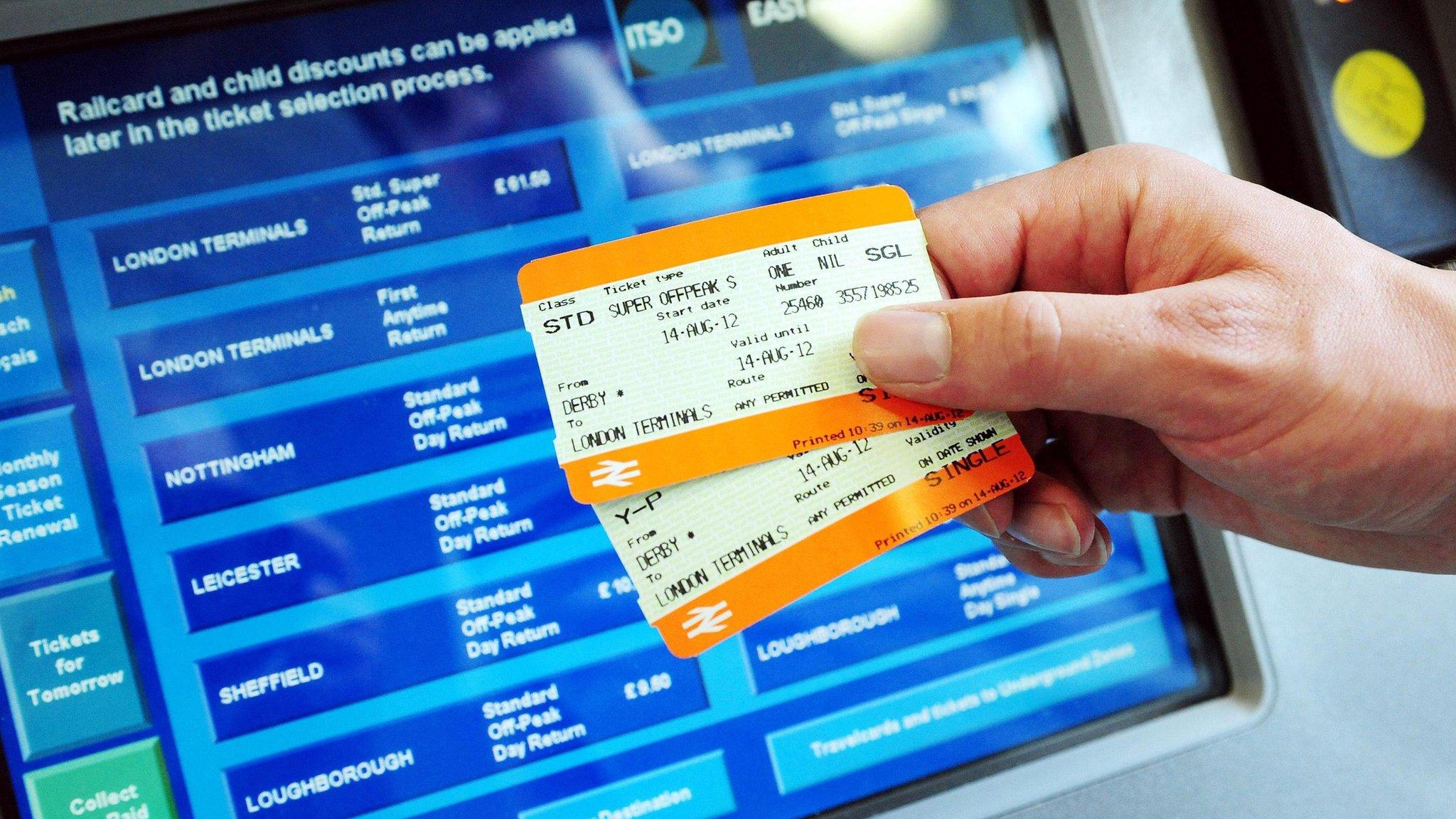Rail fares: Minister Patrick McLoughlin defends rises
- Published
- comments
Transport secretary: "I accept 2.5% is more than a passenger wants to pay"
Rail fare rises that have come into effect in England and Wales are regrettable but necessary, Transport Secretary Patrick McLoughlin has said.
Regulated fares - which include season tickets - increased by up to 2.5%, while the average fare rose by 2.2%.
The government said fares were crucial to funding rail modernisation but trade unions said the increases continued to outstrip wage growth.
Labour said it would enforce a "strict cap on fares".
Mr McLoughlin told the BBC: "The truth is we're seeing the largest investment we've seen in the railways. Over the next five years Network Rail will invest over £38.5bn.
"I accept that 2.5% is more than the passenger wants to pay. Any increase is regrettable but it is a fact that we're investing record amounts into the industry so that we get better train services."
He added that the government was protecting passengers to some extent by stopping operating companies from increasing individual fares by up to 2% more than they have done.
Salary comparison
The Campaign for Better Transport said the cost of a Milton Keynes to London season ticket had risen by 23.5% - or £930 - since January 2010. The price of a 2015 ticket is £4,888.
The group said this was one of a number of fares to increase by about four times more than average wages over the five-year period.
In terms of wages the latest statistics from the Office of National Statistics (ONS) show that from August to October 2014, average wages, excluding bonuses, were up 1.6% from a year earlier.

Analysis
Richard Westcott visited Northampton's new station - the type of infrastructure project the government said was only possible with fare increases
By BBC transport correspondent Richard Westcott
For 10 years or so, successive governments have taken a conscious decision to get more money out of rail passengers through higher fares.
They get hammered every time they put prices up, even if it's just by inflation, so why do they do it?
The reason is simple. If passengers pay more, the government, and therefore all the other taxpayers, pay less.
And the fact is that the vast majority of commuters, about 95%, don't take the train. Most people drive.
So the argument is that they're getting the people who actually use trains to pay a bigger chunk of the bill.
That's little comfort to commuters who need to find a lump sum of thousands of pounds every year, just to get to work - and who don't feel the quality of their service matches the price tag.

The TUC said the UK had some of the highest rail fares in Europe, and proportionately UK passengers spent more than twice as much of their salary, external on tickets compared to those in other countries such as Spain, France or Germany.
General secretary Frances O'Grady said: "This year's fare hike will hit passengers particularly hard because wages are rising so slowly. Rail fares are now consuming a huge proportion of people's wages, leaving precious little for other bread-and-butter expenses."
RMT general secretary Mick Cash said: "The scandal of Britain's great rail fares rip-off continues with today's hike far outstripping average pay increases, and it will once again hit those at the sharp end of the austerity clampdown the hardest."
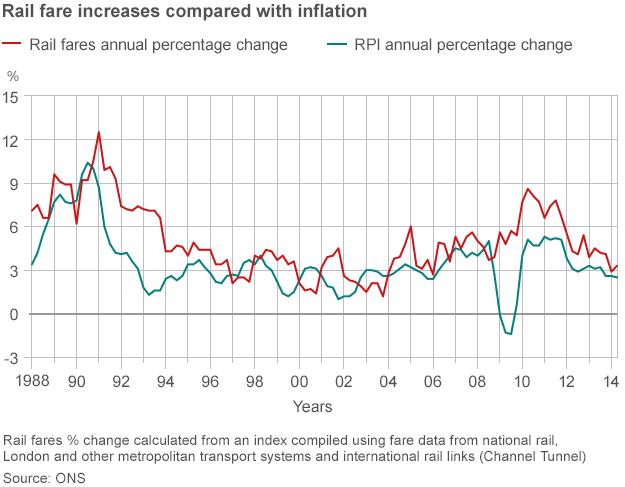
Labour shadow transport secretary Michael Dugher said: "David Cameron is presiding over a rip-off railway in Britain. Some season tickets have now risen by over 30% under this government, forcing people to pay thousands of pounds more to commute to work on increasingly overcrowded trains."
Michael Roberts, director general of the Rail Delivery Group representing rail operators and Network Rail, said: "At 2.2%, the average increase in fares in 2015 is the lowest for five years.
He said that for every £1 spent on fares a total of 97p went back into improving the industry.
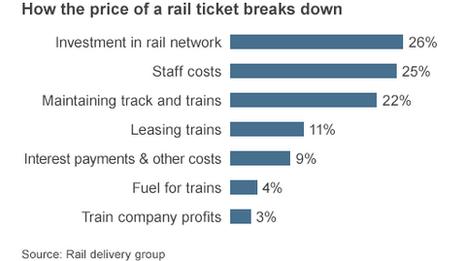
In Wales, ticket prices on Arriva Trains Wales services will rise by 2.5% or 10p - whichever is greater.
In Northern Ireland rail fares are set separately and have not risen since 2013.
Similarly in Scotland, there will be no rise in 2015 in off-peak fares, which have been frozen since January 2013. Peak fares will rise by 2.5% in line with England and Wales.
On Friday overhead wire problems at Nuneaton in the West Midlands have caused delays on services from Crewe to London. There were also delays in East Anglia and flooding in Wales meant buses had to replace trains between Blaenau Ffestiniog in Gwynedd and Llandudno Junction in Conwy.
The Office of Rail Regulation (ORR) has also said that it plans to complete an inquiry by the end of the month into what caused major disruption to passengers on Saturday 27 December, which saw engineering works overrun and London's King's Cross station close.
Earlier this week, Network Rail chief executive Mark Carne revealed he would not be taking his bonus after Christmas engineering works overran and caused major rail disruption.
- Published1 January 2015
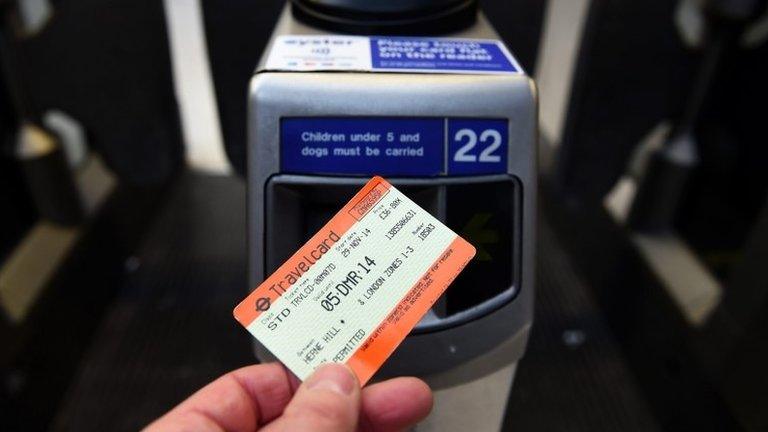
- Published2 January 2015
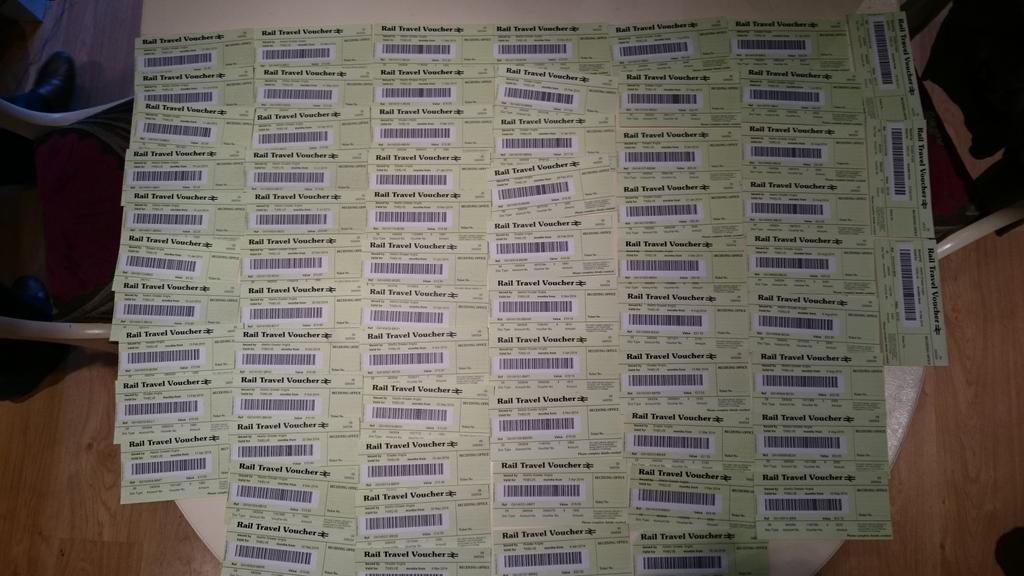
- Published30 December 2014
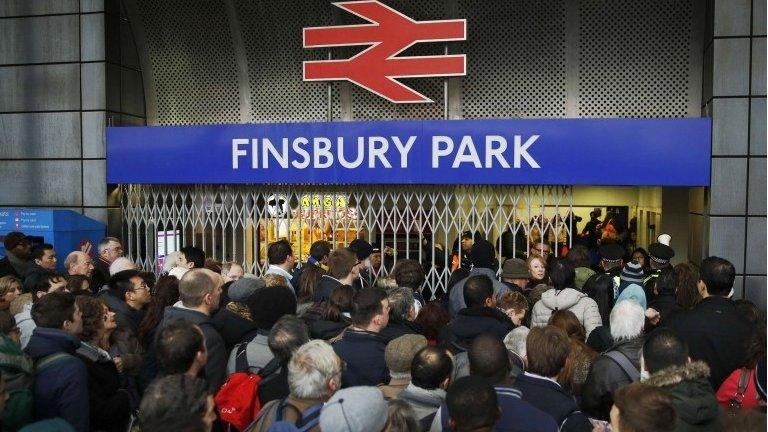
- Published7 September 2014
